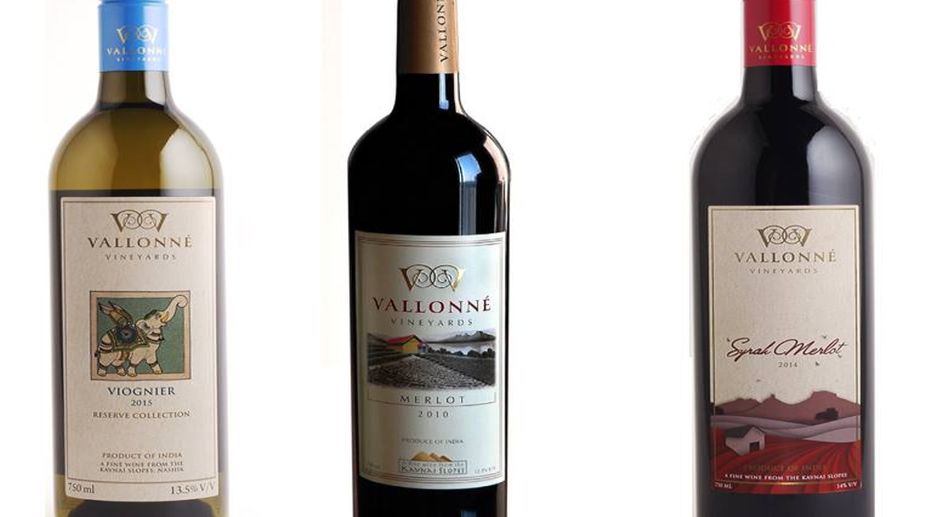Wine is steadily becoming an essential part of the urban Indian lifestyle. While, the production is seemingly insignificant compared to other countries, it has been growing over the last decade, and opening up new career options that weren’t so easily available before. Still considered a burgeoning business, the industry is already innovating with new grape varietals, wine making styles and offbeat offerings for consumers, setting new trends each year.
Shailendra Pai, founder and chief executive officer of Vallonne Vineyards (India’s first boutique winery producing premium French style wines), said, “Wine is just not an alcoholic beverage. It is a drink crafted with a generous mix of science and art, having a rich legacy and heritage.”
Having travelled extensively to wineries all over the world, his focus has always been on innovation, quality and experimentation, subsequently launching several firsts in the Indian market. He opines that although a sound knowledge of wine making, microbiology and food technology is indispensable, what one needs most is passion, persistence and creativity and the ability to go beyond quintessential classroom education when it comes to winemaking, as it is equal parts science and art.
Other potential career choices in this industry being vineyard manager, wine writer, researcher, cellar manager, cellar master, notwithstanding sales, marketing, distribution, hospitality and so on. Wine tourism is also a huge part almost anywhere in the world, as pointed out by Pai, and so one can be a wine educator and acquaint the guests with the various types on offer.
Sula Vineyards is a big name when it comes to the Indian wine industry, commanding around 65 per cent of the wine market. Cecilia Oldne, vice-president, marketing and global brand ambassador of Sula, who considers herself blessed to be a part of “the coolest wine company in one of the fastest growing wine markets” and is a staunch believer of the fact that good wine originates from the vineyards.
The profession of winemakers is a rather layered one. They oversee the process but it’s never just about making the wine. They are involved in all aspects, from grape growing to distribution and partly during the harvest season as well, including watering, feeding, training, pruning the plants.
Therefore, a bachelor’s degree in viticulture and oenology is essential, although not compulsory if one intends to venture into this field. If one wants to be a sommelier, Cecilia recommends the Wine and Spirits Educational Trust course that is tailor made for enthusiasts who are looking to enhance their wine knowledge.
It offers introductory as well as in-depth diploma course training on tasting theories as well as spirits knowledge, Sula being an approved programme provider for this course. Although alcohol is seen to be a taboo in most parts of the country till date, wine has mostly evaded such reputation faced by other alcoholic beverages.
As Pai alleges, “wine is increasingly seen as a lifestyle. It’s more of a celebratory drink and not alcohol that one consumes to get a high.” Consuming a glass of red wine everyday is even considered healthy, it is also extensively used in culinary and as claimed by Cecilia Oldne, is rapidly becoming the preferred choice of social drink among the urban educated class, thereby giving further impetus to the still developing industry. She laments, however, the inefficiency of the government in terms of easing wine policies as opposed to other parts of the world, which not only would have helped the industry grow faster but also paved the way for a healthier India. “There’s still a long way to go, and definitely room for ample improvement on everything from awareness to infrastructure,” she says.
But in spite of being a nascent industry, it has evolved tremendously, involving extensive research and experimentation. It has more choices for consumers and increased awareness in terms of wine events, tasting competitions, and therefore, an escalating demand. There was definitely a time when Indian wines were considered inferior to that of countries like France and Italy, but that notion too is fast on its way to becoming an incorrect one. It has improved remarkably both in quality and presentation, bragging of global exposure and high execution of quality practices.
A lot are now at par with great wines all over the world, as is evident from accolades garnered at international competitions, the wines of Sula, particularly, being at par with pioneering winemaking countries such as Australia and Chile. Our country isn’t far from bridging the gap about notions people had regarding Indian wines versus international ones. The future is bright with lots of opportunities within the industry.










